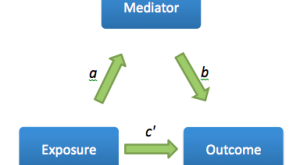Ett ljus i radiomörkret I dessa tider — när ljudrummet dränks i den kommersiella radions pubertalflams — har man nästan gett upp. Men det finns ljus i mörkret. I programmet Text och musik med Eric Schüldt — som sänds på söndagsförmiddagarna i P2 mellan klockan 11 och 12 — kan man lyssna på seriös musik och en programledare som verkligen har något att säga och inte bara låter foderluckan glappa. Att få höra någon med intelligens och känsla tala om saker som...
Read More »Me and Jane Austen in Karlsbad (personal)
Me and Jane Austen in Karlsbad (personal) Back in the 80’s yours truly had the pleasure of studying German in Vienna. A wonderful town full of history and Kaffeehäuser. A couple of years ago, I was invited to give a series of lectures at University of Vienna and at Vienna University of Economics and Business Administration. I spent an absolutely fabulous week with visits to Café Central, Hofburg, Vienna State Opera, Belvedere, Pratern, etc., etc. ...
Read More »La réforme du bac et le Covid
La réforme du bac et le Covid .[embedded content]
Read More »Extreme events and how to live with them
Extreme events and how to live with them .[embedded content]
Read More »John Maynard Keynes — life, ideas, legacy
John Maynard Keynes — life, ideas, legacy .[embedded content]
Read More »On the limits of ‘mediation analysis’ and ‘statistical causality’
“Mediation analysis” is this thing where you have a treatment and an outcome and you’re trying to model how the treatment works: how much does it directly affect the outcome, and how much is the effect “mediated” through intermediate variables … In the real world, it’s my impression that almost all the mediation analyses that people actually fit in the social and medical sciences are misguided: lots of examples where the assumptions aren’t clear and where, in any case,...
Read More »Att tjäna pengar på sjuka — en riktigt sjuk idé
Att tjäna pengar på sjuka — en riktigt sjuk idé Personal på Attendos äldreboende Långbroberg i södra Stockholm har larmat om missförhållanden – utan att de känner att de får gehör hos cheferna. Ett tiotal anställda väljer nu att berätta om: ■ Obemannade avdelningar nattetid, där boende skriker av smärta och det dröjer innan de får hjälp. ■ Blaskig soppa, frysta måltider och ont om frukost, vilket gör att brukare är hungriga och rasar i vikt. ■ Boende som...
Read More »Causality and the need to reform the teaching of statistics
Causality and the need to reform the teaching of statistics I will argue that realistic and thus scientifically relevant statistical theory is best viewed as a subdomain of causality theory, not a separate entity or an extension of probability. In particular, the application of statistics (and indeed most technology) must deal with causation if it is to represent adequately the underlying reality of how we came to observe what was seen … The network we...
Read More »Seven lessons we need to learn from the pandemic
Seven lessons we need to learn from the pandemic .[embedded content]
Read More »The elite illusion
.[embedded content] A great set of lectures — but yours truly still warns his students that regression-based averages is something we have reasons to be cautious about. Suppose we want to estimate the average causal effect of a dummy variable (T) on an observed outcome variable (O). In a usual regression context one would apply an ordinary least squares estimator (OLS) in trying to get an unbiased and consistent estimate: O = α + βT + ε, where α is a constant intercept, β a...
Read More » Lars P. Syll
Lars P. Syll




